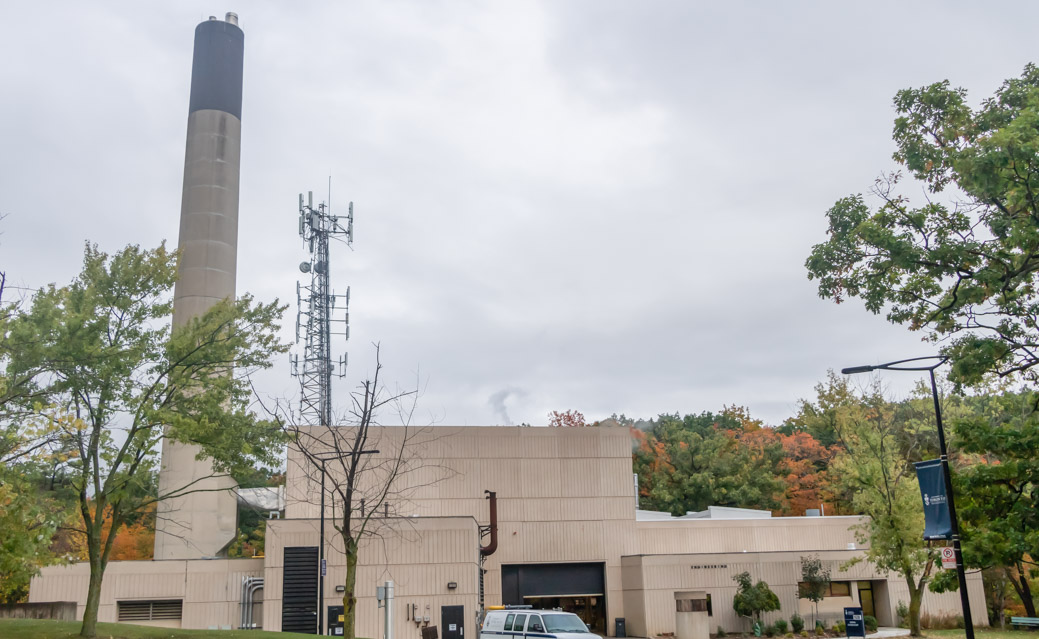U of T acts against the current ongoing climate crisis
President Meric Gertler announces the university’s commitment to reduce harmful gasses by pledging to divest from fossil fuel companies.
In a recent announcement, President Meric Gertler of the University of Toronto (U of T) reveals the university will be ‘climate positive,’ meaning more emissions will be curbed than emitted. Hoping to achieve this by 2050, Gertler also announces U of T will divest from direct investments in fossil fuels in a $4 billion financial endowment.
In the aforementioned letter, Gertler states that the university is committed to net zero carbon emissions in their plan to fight against the climate crisis. He writes, “the growing severity of the climate crisis now demands bold actions that have both substantive and symbolic impact.” With the ongoing environmental concerns, investments in eco-friendly tools are essential.
Gertler continues to say, “to achieve this goal, we will transform our energy and utility infrastructure, and adopt leading-edge building design and retrofits to reduce our GHG emissions.”
In the next 12 months, the University of Toronto Asset Management Corporation (UTAM) will be the ones to divest from direct investments in companies associated with fossil fuels. As such, UTAM will be collaborating with United Nations (UN)-convened Net-Zero Asset Owner Alliance to achieve this goal.
With a group of 61 institutional investors, this organization represents $10 trillion assets in an aim to transition portfolios to net-zero greenhouse gas (GHG) emissions within 30 years. That said, U of T will be the first university in the world to connect with these institutional investors.
In 2019, U of T set the goal for a Low-Carbon Action Plan by 2030 a reduction of 37 per cent of GHG emissions. To achieve this, U of T will change the infrastructure designs to reduce emission gases. Additionally, U of T is collaborating with McGill University in 2020 in a program named Climate Charter for Canadian Universities. The purpose of the program is to reduce the carbon-dioxide footprint in the institutions.
Before U of T’s decision to divest from fossil fuels, there have been several petitions circulating for universities and other organizations to eliminate investments in fossil fuel companies. One petition, for instance, is directed to the Governing Council to overturn the 2016 decision to not divest.
Assistant Professor Trevor Porter, working in the geography, geomatics, and environment department, shares some insight in an email interview with The Medium. Porter states that “[moving] toward ‘net-zero’ is a meaningful step towards reducing U of T’s carbon footprint.” He continues, “investment dollars that would be available to fossil fuel companies to fund resource exploration and extraction will now be put to better use by companies working to innovate and reduce the cost of green energy technologies.”
Porter also comments on what students can do to reduce the effects of pollution as he states, “at a personal level, being mindful of one’s carbon footprint, meaning the greenhouse gases produced as the result of personal activities (e.g., travel, energy consumption, diet type, etc.), is a useful start.”
“While this may not sound like a lot, the rate of change is unusual in at least the last 10,000 years and the consequences of this warming are potentially dire. This warming is causing glacier melt, global sea level rise, increased severity of extreme weather and wildfires, and more. Climate warming amplifies these threats to global society.”
With the climate crisis only worsening, U of T’s decision to address these issues through collaboration with influential investors is leading the campus in the right direction. The reduction of emission gases will significantly benefit both the community and the environment.
Associate Opinion Editor (Volume 48) — Haya Abu Ghosh is a fourth-year student double majoring in English and Political Science. When I am not doing any school work, I love going out with friends to coffee shops and dining in restaurants to socialize. My passions include but are not limited to reading, writing, sketching, binge-watching Netflix TV shows, taking pictures of nature and talking about politics (do not get me started talking about the Palestinian-Israeli conflict, Indigenous injustices, Uyghur Muslims in China and many more topics).


